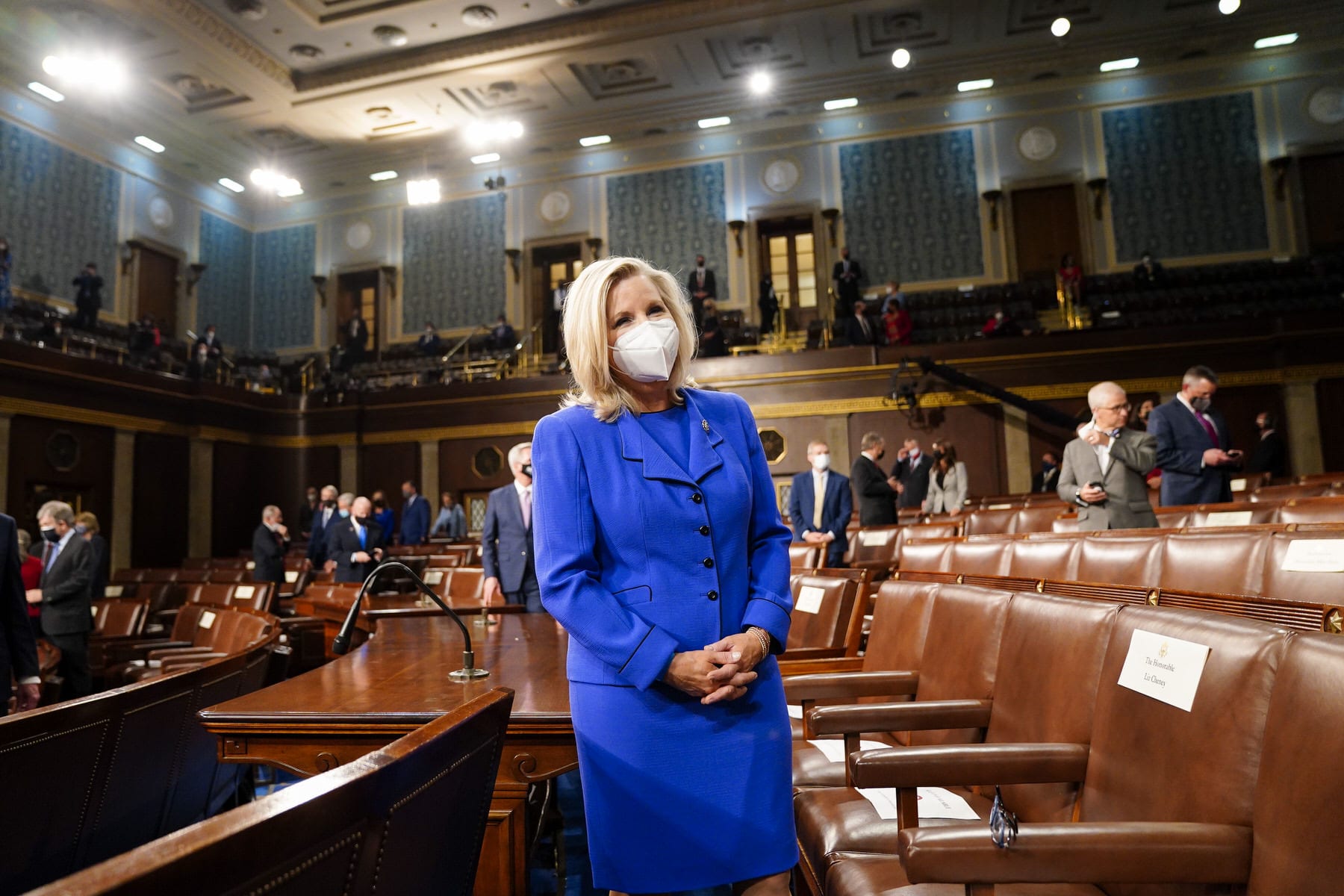Republican leaders in the U.S. House of Representatives are pushing to remove Rep. Liz Cheney from their team over her criticism of former President Donald Trump, with Minority Leader Kevin McCarthy and his deputy both making clear this week that they prefer to see her replaced.
McCarthy told “Fox & Friends” host Steve Doocy on Tuesday morning that he has “lost confidence” in Cheney — the third-ranking House Republican and the only woman in the party’s leadership — and that he assumed a member of the conference would bring a motion to remove her from her post.
“I think she’s got real problems, I’ve had it with her,” McCarthy told Doocy before their on-air interview began, according to a recording obtained by Axios.
A vote could come as soon as next Wednesday, after lawmakers return from in-state work periods and the party holds its weekly meeting. Rep. Elise Stefanik of New York is the replacement favored by party leaders as well as Trump, strategists and staffers said.
A spokesperson for Rep. Steve Scalise, McCarthy’s deputy, said he would back Stefanik, who on Wednesday tweeted: “Thank you President Trump for your 100% support for House GOP Conference Chair. We are unified and focused on FIRING PELOSI & WINNING in 2022!”
In an opinion piece for The Washington Post published Wednesday afternoon, Cheney took aim at Trump and those in her party who have defended his false claims about the election.
“The question before us now is whether we will join Trump’s crusade to delegitimize and undo the legal outcome of the 2020 election, with all the consequences that might have,” Cheney wrote. “… While embracing or ignoring Trump’s statements might seem attractive to some for fundraising and political purposes, that approach will do profound long-term damage to our party and our country.”
The Republican conference chair is responsible for crafting the party’s messaging on key issues. While Cheney is a reliable conservative and frequent critic of President Joe Biden’s agenda, the Wyoming lawmaker has increasingly found herself out of step with the party’s base over her denouncement of Trump’s attempts to characterize the 2020 election, which was conducted with no evidence of meaningful fraud, as a “big lie.”
“The Fraudulent Presidential Election of 2020 will be, from this day forth, known as THE BIG LIE!” Trump wrote in an email Monday morning.
Within the hour, Cheney had fired back.
“The 2020 presidential election was not stolen. Anyone who claims it was is spreading THE BIG LIE, turning their back on the rule of law, and poisoning our democratic system,” she wrote on Twitter.
This is not the first time Cheney’s post has been in jeopardy.
She was one of 10 House Republicans, and the only member of party leadership, who voted in January to impeach Trump. Some of Cheney’s colleagues moved to remove her then, as party leaders were also figuring out how to handle Rep. Marjorie Taylor Greene, a first-term Trump loyalist from Georgia who ran a campaign rooted in debunked QAnon conspiracy theories. Eleven Republicans subsequently joined Democrats to strip Greene of her committee assignments.
McCarthy waffled then, trying to balance calls from the conservative House Freedom Caucus to oust Cheney, whom they reject as one of their own, and outrage over Greene’s bombastic, conspiracy-laden version of Trumpism. After a series of meetings with Cheney, Greene and other members of his conference, McCarthy said in January that he would continue to support both women, and Cheney remained in her position after Republicans voted 145-to-61 by secret ballot to keep her there.
“I think that [McCarthy and Scalise] thought that her surviving the vote, and them going to bat for her, would cause her to do what lots of Republicans have done, which is move on … but she has continued to talk” about Trump’s false claims, said Republican strategist Sarah Longwell, who is part of a group defending lawmakers who backed Trump’s impeachment.
McCarthy and Scalise were both among the 147 Republicans who voted to overturn the results of the free and fair 2020 election on the day the Capitol was attacked. Cheney said the former president had “assembled the mob” that showed up that day before voting for his second impeachment.
Cheney has been censured by some county and local parties in her state and drew a primary challenger just weeks after winning reelection with nearly 70 percent of the vote. Trump’s backers, including one of his sons, have campaigned for her removal.
Cheney nevertheless raised $1.54 million for next year’s reelection campaign during the first quarter of 2021 — a five-fold increase over the amount her campaign raised in the first quarter of 2019, the last year in which she did not face reelection. More than $1 million of that came from individual donors, both in Wyoming and elsewhere, a fundraising pattern typical for party leaders.
Stefanik is a fourth-term lawmaker from a rural district in northern New York who, at the time of her first election in 2014, was the youngest woman elected to Congress. Though she was initially thought of as a centrist, she increasingly aligned herself with Trump over the course of his presidency. She also formed a group to recruit Republican women that played a role in increasing their ranks in the House in last year’s election.
If a vote is held next week on Cheney’s role in House leadership, it would also be by secret ballot.
“I think that continues to work in Liz Cheney’s favor,” Longwell said.
Republican strategist Doug Heye, who was a senior aide to former House Majority Leader Eric Cantor and a Republican National Committee spokesperson, agreed that Cheney’s removal is not necessarily a “done deal.”
“There always has been a ‘vote no, hope yes caucus’ — that will absolutely be a factor here,” Heye said, noting that there has always been a group of Republican lawmakers wary of Trump but unwilling to cross him publicly.
“I think what’s clear is, whatever happens in the House Republican Conference over the next week or two, Liz Cheney’s voice isn’t going to go anywhere,” he added.






